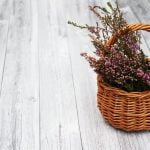Gardening for beginners is not only a popular hobby but also a rewarding one. Whether you have a green thumb or are just starting out, diving into the world of gardening can bring numerous benefits to your life. From improving mental well-being to promoting physical health, gardening offers a multitude of advantages that anyone can enjoy.
One of the top reasons why gardening for beginners is a good idea is the therapeutic effect it has on individuals. Spending time outdoors, connecting with nature, and getting your hands dirty can help reduce stress and anxiety levels. Gardening can serve as a form of meditation, allowing you to focus on the task at hand and clear your mind from daily worries.
Furthermore, starting a garden can also lead to an increase in physical activity. Digging, planting, weeding, and watering all require movement that can contribute to a healthier lifestyle. Engaging in these activities regularly can improve strength, flexibility, and overall well-being.
Additionally, growing your own fruits, vegetables, or herbs can encourage a healthier diet full of fresh produce that you have nurtured yourself. So if you’re considering taking up gardening as a hobby, know that you’re not just growing plants – you’re also cultivating a healthier lifestyle for yourself.
Must-Have Tools and Supplies for Beginner Gardeners
Gardening for beginners is a wonderful idea for those looking to explore a new hobby that is not only rewarding but also beneficial for their overall well-being. One of the key aspects of starting a successful garden as a beginner is having the essential tools and supplies at hand. Investing in the right equipment can make the gardening process more efficient and enjoyable.
One of the must-have tools for beginner gardeners is a garden trowel, which is essential for digging small holes, transplanting seedlings, and removing weeds. A quality pair of gardening gloves is also important to protect your hands from cuts, scrapes, and blisters while working in the garden. Additionally, a sturdy rake can help with leveling soil, spreading mulch, and collecting debris.
When it comes to supplies, having a reliable watering can or hose is crucial for keeping your plants hydrated. A good pair of pruning shears will come in handy for trimming branches and deadheading flowers. It’s also recommended to have fertilizers, potting mix, and containers ready for re-potting plants or starting seeds indoors. By equipping yourself with these essential tools and supplies, you’ll be well on your way to creating a flourishing garden as a beginner gardener.
| Tools | Supplies |
|---|---|
| Garden Trowel | Fertilizers |
| Gardening Gloves | Potting Mix |
| Rake | Containers |
Choosing the Right Plants for Your Garden
When it comes to starting a garden as a beginner, one of the most important decisions you will need to make is choosing the right plants for your garden. Selecting the right plants can set you up for success and make the gardening experience more enjoyable. There are several factors to consider when choosing plants for your garden, including climate, soil type, amount of sunlight, and your own personal preferences.
Consider Your Climate and Zone
Before selecting plants for your garden, it’s essential to consider your climate and gardening zone. Different plants thrive in different climates and zones, so be sure to choose plants that are suitable for your specific area. Research which plants are native or well-adapted to your region to increase the chances of success in your garden.
Choose Plants Based on Sunlight and Soil Conditions
Another crucial factor to consider when choosing plants for your garden is the amount of sunlight and soil conditions in your garden space. Some plants require full sun, while others prefer partial shade. Additionally, certain plants thrive in well-draining soil, while others do well in more moisture-retentive soils. Be sure to assess the sunlight levels and soil conditions in your garden area before selecting plants.
Consider Your Preferences and Gardening Goals
Lastly, when choosing plants for your garden as a beginner gardener, consider your own preferences and gardening goals. Think about what types of plants you enjoy growing or eating, whether you want to attract pollinators or wildlife to your garden, and how much time you can dedicate to caring for your plants.
By incorporating plants that align with your interests and goals, you’ll likely find gardening even more rewarding. In conclusion, taking the time to carefully select the right plants for your garden will help set you up for success as a beginner gardener and ensure a fulfilling gardening experience ahead.
Planning Your Garden Layout
When starting your gardening journey as a beginner, one of the key aspects to consider is planning your garden layout. This step is crucial in ensuring that your plants thrive and grow successfully. A well-thought-out layout can make a significant difference in the overall look and functionality of your garden. One good idea for beginners is to start with a small garden plot or container garden to manage and learn from on a smaller scale before expanding.
One important tip for planning your garden layout is to consider the sunlight exposure in different areas of your yard or balcony. Make sure to place sun-loving plants in areas that receive ample sunlight throughout the day, while placing shade-tolerant plants in shadier spots. Another helpful trick is to group plants with similar water requirements together, making it easier for you to provide adequate watering without over or under-watering any particular plant.
To further assist you in planning your garden layout, consider creating a rough sketch or map of your gardening space. This visual representation can help you determine where to place pathways, beds, and containers, as well as how much space each plant will require.
Take into account factors such as access to water sources for irrigation and proximity to tools and supplies storage areas for added convenience. Overall, thoughtful planning of your garden layout can set you up for success as a beginner gardener.
| Benefit | Description |
|---|---|
| Improved Mental Health | Gardening has been shown to reduce stress levels and improve overall mental well-being. |
| Physical Exercise | Gardening provides a great opportunity for physical activity through tasks like digging, planting, and weeding. |
| Connection with Nature | Spending time tending to plants allows beginners to connect with nature and appreciate the environment. |
Understanding and Preparing Your Soil
When starting a garden as a beginner, understanding and preparing your soil is crucial for the success of your plants. Good soil provides essential nutrients that help plants grow strong and healthy. Here are some tips to help you get started on your gardening journey:
Testing Your Soil
Before planting anything in your garden, it’s important to test your soil to determine its pH level and nutrient content. You can purchase a simple soil testing kit at your local gardening store or have a professional lab analyze your soil. The results will help you determine if any amendments need to be made to improve the quality of your soil.
Amending Your Soil
Once you have tested your soil, you may need to amend it by adding organic matter such as compost, manure, or peat moss. These materials will help improve the structure and fertility of the soil, providing a better growing environment for your plants. Mixing in amendments also helps with water retention and drainage, which are important factors for plant growth.
Mulching Your Garden
One way to maintain healthy soil is by mulching your garden beds. Mulch helps retain moisture in the soil, suppress weeds, regulate temperature fluctuations, and improve overall soil structure over time. Organic mulches like bark chips, straw, or leaves break down gradually, adding nutrients back into the soil as they decompose. By regularly mulching your garden beds, you can ensure that your plants have a conducive environment to thrive.
By understanding and preparing your soil properly, you are setting yourself up for gardening success as a beginner. Taking the time to test, amend, and mulch your soil can make a significant difference in the health and productivity of your plants. Remember that good soil is the foundation of a bountiful garden – so don’t skip this important step in your gardening journey.
Watering and Sunlight
When it comes to gardening for beginners, understanding the importance of watering and sunlight is crucial for the success of your garden. Proper watering and exposure to sunlight are essential factors that directly impact the health and growth of your plants. Here are some tips to help you navigate these key aspects of gardening:
- Watering: One of the most common mistakes beginner gardeners make is either overwatering or underwatering their plants. It’s important to find the right balance and ensure that your plants receive an adequate amount of water. Different plants have different watering needs, so it’s essential to research each plant species in your garden. Consider investing in a quality watering can or hose with a spray nozzle to control water flow.
- Sunlight: Sunlight is essential for the process of photosynthesis, which is how plants convert light into energy for growth. Before planting, observe the sunlight patterns in your garden to determine which areas receive full sun, partial sun, or shade. Most vegetables and flowering plants require at least 6-8 hours of direct sunlight per day. Consider using raised beds or containers that can be easily moved to ensure your plants receive adequate sunlight.
Properly managing the watering and sunlight intake for your plants will not only promote healthy growth but also help prevent issues such as root rot from overwatering or stunted growth from lack of sunlight. As a beginner gardener, monitoring these essential factors closely and making adjustments as needed will set you on the path to gardening success.
In addition to regular watering and ensuring proper sunlight exposure, it’s important to factor in other variables such as soil drainage and air circulation when planning out your garden layout. By creating a well-balanced environment for your plants with adequate water, sunlight, and nutrients, you’ll be on your way to cultivating a thriving garden as a beginner gardener – truly proving that gardening for beginners is indeed a good idea.
Dealing With Common Garden Pests and Diseases
Gardening for beginners is a fantastic idea for those looking to enjoy the numerous benefits that come with cultivating your own garden. Not only does it provide a sustainable source of fresh produce, but it also serves as a therapeutic and rewarding hobby. However, one common challenge faced by beginner gardeners is dealing with pests and diseases that can harm your plants. Here are some tips on how to effectively manage these issues:
- Identify the pest or disease: One of the first steps in addressing any problem in your garden is to correctly identify the pest or disease affecting your plants. Look for common signs such as holes in leaves, discoloration, wilting, or unusual growth patterns.
- Implement natural control methods: As a beginner gardener, it’s important to start with non-toxic or natural pest control methods before resorting to chemical solutions. This includes practices such as companion planting, using beneficial insects like ladybugs, and practicing good garden hygiene by removing dead plant material.
- Regular monitoring: Keep a close eye on your plants for any signs of pests or diseases. Early detection can help prevent an infestation from spreading and causing extensive damage to your garden. Check underneath leaves, along stems, and around the soil regularly.
Furthermore, when it comes to preventing diseases in your garden:
- Provide adequate air circulation: Proper spacing between plants allows for better airflow, reducing the risk of fungal diseases that thrive in humid conditions.
- Avoid over-watering: Excess moisture can create a conducive environment for diseases such as powdery mildew and root rot. Water plants at their base in the morning to allow foliage to dry out during the day.
- Clean tools and equipment: Disinfect your gardening tools after each use to prevent the spread of diseases between plants. Prune infected plant parts promptly and dispose of them properly.
By being proactive in managing common garden pests and diseases, beginner gardeners can ensure their plants thrive and yield successful harvests throughout the growing season. Remember that patience and diligence are key when it comes to maintaining a healthy garden environment.
The Joy of Harvesting
Harvesting the fruits of your labor is one of the most rewarding aspects of gardening for beginners. There’s nothing quite like picking your own fresh produce and enjoying the taste of vegetables and herbs that you grew with your own hands. Whether you’re growing tomatoes, cucumbers, or strawberries, seeing the results of your hard work can be truly gratifying.
One tip for first-time gardeners when it comes to harvesting is to pick your vegetables and fruits at the right time. Different plants have different cues that indicate they are ready for harvest.
For example, tomatoes should be picked when they are fully ripe and have a deep color, while cucumbers should be harvested while they are still firm and before they become too large. Doing some research on the specific plants you are growing can help you determine the best time to harvest for optimal flavor and quality.
Another important tip for beginner gardeners is to not let your harvested produce go to waste. If you find yourself with an abundance of vegetables or fruits, consider sharing them with friends, family, neighbors, or even donating them to a local food pantry.
You can also learn how to properly store and preserve your harvest through techniques like canning, freezing, or drying. This way, you can enjoy the fruits of your labor all year long and share the joy of gardening with others.
Top Mistakes to Avoid as a Beginner Gardener
In conclusion, embarking on the journey of gardening for beginners is indeed a good idea for numerous reasons. The top 5 benefits include physical exercise, stress relief, mental well-being, sustainable living, and the joy of watching your efforts bloom into beautiful plants.
With the right tools and supplies, choosing the appropriate plants for your garden, planning a strategic layout, understanding and preparing your soil properly, and ensuring adequate watering and sunlight exposure, you are well on your way to gardening success.
One key aspect that beginner gardeners often overlook is dealing with common garden pests and diseases. It is crucial to educate yourself on preventive measures and organic solutions to protect your plants from these threats. Additionally, the joy of harvesting your own fresh produce as a first-time gardener cannot be understated. The satisfaction of enjoying fruits or vegetables that you nurtured from seed to table is unparalleled.
Lastly, being mindful of the top mistakes to avoid as a beginner gardener will save you time, effort, and disappointment in the long run. Some common missteps include overwatering or underwatering plants, neglecting proper soil preparation, overcrowding plants in small spaces, not researching plant care requirements thoroughly, and skipping regular pest inspections.
By learning from these pitfalls and continuously improving your gardening skills through experience and education, you will gradually become a more confident and successful gardener. Remember that gardening is a journey full of learning opportunities and rewards to be enjoyed along the way.
Frequently Asked Questions
What Is a Good Garden for Beginners?
A good garden for beginners is one that is easy to maintain and forgiving of mistakes. Simple vegetables like tomatoes, zucchinis, and herbs are great options. Raised bed gardens can also be helpful for new gardeners.
Is Gardening Worth It Financially?
Gardening can be worth it financially depending on various factors. Growing your own produce can save money on grocery bills in the long run. However, initial investments in tools, seeds, and soil may take time to offset.
Is Gardening a Healthy Hobby?
Gardening is indeed a healthy hobby with numerous benefits. It provides physical exercise, fresh air, and sunshine which can improve mood and overall wellbeing. Working with plants also promotes relaxation and reduces stress levels.

Welcome to my gardening blog! I am passionate about plants and enjoy sharing my knowledge and experiences with others. In this blog, I will write about everything related to gardening, from tips on how to get started to updates on my own garden projects.





